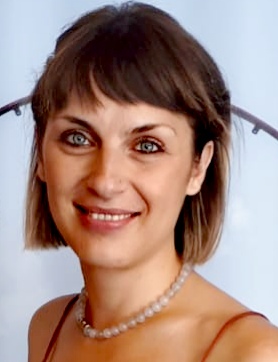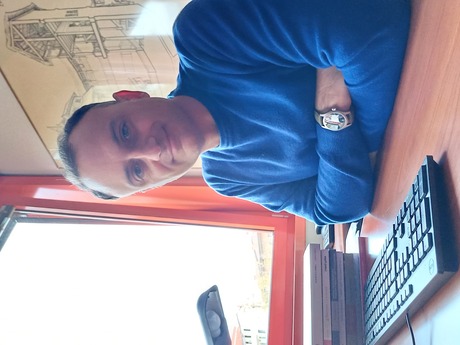Studying at the University of Verona
Here you can find information on the organisational aspects of the Programme, lecture timetables, learning activities and useful contact details for your time at the University, from enrolment to graduation.
Academic calendar
The academic calendar shows the deadlines and scheduled events that are relevant to students, teaching and technical-administrative staff of the University. Public holidays and University closures are also indicated. The academic year normally begins on 1 October each year and ends on 30 September of the following year.
Course calendar
The Academic Calendar sets out the degree programme lecture and exam timetables, as well as the relevant university closure dates..
| Period | From | To |
|---|---|---|
| I semestre (Lingue e letterature straniere) | Sep 25, 2023 | Dec 22, 2023 |
| II semestre (Lingue e letterature straniere) | Feb 19, 2024 | May 25, 2024 |
| Session | From | To |
|---|---|---|
| ESAMI LINGUE - sessione invernale | Jan 8, 2024 | Feb 10, 2024 |
| ESAMI LINGUE - sessione estiva | May 27, 2024 | Jul 20, 2024 |
| ESAMI LINGUE - sessione autunnale | Aug 26, 2024 | Sep 21, 2024 |
| Session | From | To |
|---|---|---|
| LAUREE LINGUE - sessione autunnale (a.a. 2022-2023) | Nov 6, 2023 | Nov 11, 2023 |
| LAUREE LINGUE - sessione straordinaria (a.a. 2022-2023) | Apr 2, 2024 | Apr 8, 2024 |
| LAUREE LINGUE - sessione estiva (a.a. 2023-2024) | Jul 8, 2024 | Jul 13, 2024 |
| Period | From | To |
|---|---|---|
| Festa di Ognissanti | Nov 1, 2023 | Nov 1, 2023 |
| Festa dell'Immacolata | Dec 8, 2023 | Dec 8, 2023 |
| LINGUE - Vacanze di Natale | Dec 23, 2023 | Jan 7, 2024 |
| Vacanze di Pasqua | Mar 30, 2024 | Apr 1, 2024 |
| Festa della Liberazione | Apr 25, 2024 | Apr 25, 2024 |
| Festa del Lavoro | May 1, 2024 | May 1, 2024 |
| Festa del Santo Patrono | May 21, 2024 | May 21, 2024 |
| Festa della Repubblica | Jun 2, 2024 | Jun 2, 2024 |
| Vacanze estive | Aug 12, 2024 | Aug 17, 2024 |
Exam calendar
Exam dates and rounds are managed by the relevant Foreign Languages and Literatures Teaching and Student Services Unit.
To view all the exam sessions available, please use the Exam dashboard on ESSE3.
If you forgot your login details or have problems logging in, please contact the relevant IT HelpDesk, or check the login details recovery web page.
Should you have any doubts or questions, please check the Enrollment FAQs
Academic staff
 liampaul.benison@univr.it
liampaul.benison@univr.it
Study Plan
The Study Plan includes all modules, teaching and learning activities that each student will need to undertake during their time at the University.
Please select your Study Plan based on your enrollment year.
1° Year
| Modules | Credits | TAF | SSD |
|---|
2° Year It will be activated in the A.Y. 2024/2025
| Modules | Credits | TAF | SSD |
|---|
Introduction to Germanic Philology
3° Year It will be activated in the A.Y. 2025/2026
| Modules | Credits | TAF | SSD |
|---|
| Modules | Credits | TAF | SSD |
|---|
| Modules | Credits | TAF | SSD |
|---|
Introduction to Germanic Philology
| Modules | Credits | TAF | SSD |
|---|
| Modules | Credits | TAF | SSD |
|---|
Legend | Type of training activity (TTA)
TAF (Type of Educational Activity) All courses and activities are classified into different types of educational activities, indicated by a letter.
French literature 1 (2023/2024)
Teaching code
4S008343
Teacher
Coordinator
Credits
9
Also offered in courses:
- French literature 1 of the course Bachelor's degree in Foreign Languages and Literatures
- French Literature (i) of the course Bachelor’s degree in Humanities
Language
Italian
Scientific Disciplinary Sector (SSD)
L-LIN/03 - FRENCH LITERATURE
Period
II semestre (Lingue e letterature straniere) dal Feb 19, 2024 al May 25, 2024.
Courses Single
Authorized
Learning objectives
In accordance with the periodization adopted in our French literature courses (first year: from 1850 to today; second year: Eighteenth century and first half of the Nineteenth century; third year: Sixteenth and Seventeenth centuries), this course introduces to French literature from 1850 to today, with in-depth analysis of some aspects, authors and works, in order to develop critical competences concerning various literary genres. As for the Bachelor’s Degree in Humanities, the historical insights and critical perspectives offered by this course are useful tools for the comparative study of French literature in the European context. At the end of the course, students shall therefore acquire overall knowledge of the history of French literature from 1850 to today (main literary movements, authors and works), along with critical competences and the ability of applying them to the comparative analysis of texts belonging to different literary genres. This course is divided in two parts because students attending the Bachelor’s Degree in Humanities achieve 6 credits (part 1 of the course), whereas students attending the Bachelor’s degrees in Foreign Languages and Literatures and in Languages and Literatures for Publishing and Digital Media achieve 9 credits (part 1 and 2 of the course, the second part being conceived as the completion of the first).
Prerequisites and basic notions
Both highly recommended, the achievement of the linguistic certification and the passing of the French language 1 exam are not mandatory to access the exam.
Program
Part 1
An outline of the history of French literature from 1850 to the Second World War with in-depth analysis of some emblematic aspects, authors and works, and a critical introduction to the study of texts belonging to different literary genres:
a. poetry, from Baudelaire to early XXth-Century avant-garde movements;
b. narrative prose, from Flaubert to World War II (texts by Nerval, Flaubert, Proust).
The full-length reading of one literary work in French, among those presented during the course, is compulsory.
A detailed program with bibliographical information, as well as a selection of literary and critical texts, will be given at the beginning and during the course.
The course, as well as the final oral exam, are in Italian. All texts (literary excerpts and extended readings) must be in French. Only students attending the course which pertains to the Department of Cultures and Civilizations (Lettere) may read the chosen work in the Italian translation.
Part 2
An outline of contemporary French literature from the end of the Second World War to today, with particular regard to narrative prose and drama:
a. from the ‘nouveau théâtre’ to contemporary theatre (texts by Ionesco, Koltès);
b. from the the Second World War to contemporary narrative prose (texts by Camus, Perec, Modiano, Juliet, Kerangal, Bégaudeau).
The reading of one entire literary work in French, among those presented during the course, is compulsory.
A detailed program with bibliographical information, as well as a selection of literary and critical texts, will be given at the beginning and during the course.
The course and the final oral exam are in Italian. All texts (literary excerpts and extended readings) must be in French.
Bibliography
Didactic methods
In-presence teaching. Integrated into the course, the hours of practice will be dedicated to reading various texts in the program.
Learning assessment procedures
Oral exam.
Evaluation criteria
The following are assessed: completeness of knowledge, precision and clarity of presentation, expressive reading in French, mastery of anthological texts and complete readings, as well as the ability to develop a critical argument on the subject.
Criteria for the composition of the final grade
The final grade is given for about 2/3 by the knowledge related to the first part of the program, for 1/3 by the knowledge related to the second part of the program.
Exam language
Italiano
Type D and Type F activities
Soft skills
Find out more about the Soft Skills courses for Univr students provided by the University's Teaching and Learning Centre: https://talc.univr.it/it/competenze-trasversali
Contamination Lab
The Contamination Lab Verona (CLab Verona) is an experiential course with modules on innovation and enterprise culture that offers the opportunity to work in teams with students from all areas to solve challenges set by companies and organisations. Upon completion of a CLab, students will be entitled to receive 6 CFU D (type credit).
Find out more: https://www.univr.it/clabverona
PLEASE NOTE: In order to be admitted to any teaching activities, including those of your choice, you must be enrolled in the academic year in which the activities in question are offered. Students who are about to graduate in the March-April sessions are therefore advised NOT to undertake extracurricular activities in the new academic year in which they are not enrolled, as these graduation sessions are valid for students enrolled in the previous academic year. Therefore, students who undertake an activity in an academic year in which they are not enrolled will not be granted CFU credits.
| years | Modules | TAF | Teacher |
|---|---|---|---|
| 1° 2° 3° | Wikipedia and digital humanities: laboratory for translation and digitization of cultural heritage | D |
Dunia Hourani Martin
(Coordinator)
|
To discover all the teaching activities accredited by the foreign teaching college click here
Career prospects
Module/Programme news
News for students
There you will find information, resources and services useful during your time at the University (Student’s exam record, your study plan on ESSE3, Distance Learning courses, university email account, office forms, administrative procedures, etc.). You can log into MyUnivr with your GIA login details: only in this way will you be able to receive notification of all the notices from your teachers and your secretariat via email and soon also via the Univr app.
Student login and resources
Gestione carriere
Assegnazione tutore
Attività accreditate D/F
Calendario didattico dettagliato
Cambio lingua curriculare
Competenze informatiche
Competenze linguistiche (prima e seconda lingua)
Competenze linguistiche in triennale (terza lingua CFU F)
Compilazione del piano didattico
Corso di Lingua portoghese
Erasmus+ e altre esperienze all'estero
Linguistic training CLA
Presentazione dei corsi di studio e Open day
Graduation
List of theses and work experience proposals
| Stage | Research area |
|---|---|
| PROGETTO MAMBRINO Stage per bibliografia | Various topics |
Saperi minimi
Stage e tirocini
Nel piano didattico della laurea triennale in Lingue e letterature per l’editoria e i media digitali (L11 ED-DH) è previsto un tirocinio/stage obbligatorio (CFU 6).
Le attività di stage sono finalizzate a far acquisire allo studente una conoscenza diretta in settori di particolare interesse per l’inserimento nel mondo del lavoro e per l’acquisizione di abilità professionali specifiche.
Le attività di stage sono svolte sotto la diretta responsabilità di un singolo docente presso studi professionali, enti della pubblica amministrazione, aziende accreditate dall’Ateneo veronese.
I crediti maturati in seguito ad attività di stage saranno attribuiti secondo quanto disposto nel dettaglio dal “Regolamento d’Ateneo per il riconoscimento dei crediti maturati negli stage universitari” vigente.
- Tutte le informazioni in merito agli stage per futuri studenti sono disponibili alla pagina Stage e tirocini.
- Tutte le informazioni in merito agli stage per studenti iscritti sono pubblicate in MyUnivr - come fare per - stage e tirocini.
- Tutte le informazioni in merito agli stage per le aziende sono disponili alla pagina Stage e tirocini per azienze.
Ulteriori informazioni al seguente link https://www.univr.it/it/i-nostri-servizi/gestione-carriere-studenti-lingue-e-letterature-straniere/stage-e-tirocini-lingue-e-letterature-straniere

 +39 045802 8409
+39 045802 8409

































